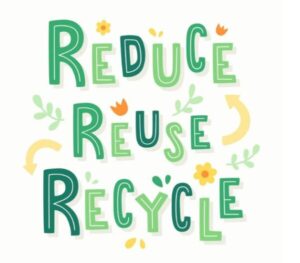Green Living Ideas: Sustainable Choices for a Healthier Planet
Sustainable Solutions: Building a Healthier Planet with Eco-Friendly Choices
In our fast-paced world, where convenience often trumps sustainability, it’s easy to overlook the impact our daily choices have on the health of our planet. However, making small changes in our lifestyles can collectively make a big difference in preserving the environment for future generations. From reducing waste to adopting eco-friendly habits, here are some choices we can make for a healthier planet:
Reduce, Reuse, Recycle

- Reduce Consumption: Start by questioning whether you really need that new item before purchasing it. By consuming less, you reduce the demand for products that contribute to environmental degradation.
- Reuse Items: Get creative with repurposing items instead of throwing them away. Old jars can become storage containers, and fabric scraps can be used for crafts or quilting projects.
- Recycle Responsibly: Sort your waste and recycle materials like paper, glass, plastic, and metal. Many communities offer recycling programs, making it easier than ever to dispose of recyclables properly.
Choose Sustainable Transportation
- Walk or Bike: Opt for walking or biking whenever possible, reducing carbon emissions and promoting personal health at the same time.
- Use Public Transportation: Public transportation is a more sustainable option than driving alone, as it reduces traffic congestion and lowers greenhouse gas emissions.
- Carpooling: Share rides with friends, family, or coworkers to minimize the number of vehicles on the road.
Embrace Energy Efficiency
- Switch to LED Bulbs: LED bulbs use significantly less energy than traditional incandescent bulbs and last much longer, saving you money on your energy bills in the long run.
- Unplug Electronics: Even when turned off, electronics consume energy if they’re plugged in. Unplug devices when they’re not in use or use power strips to easily turn multiple devices off at once.
- Invest in Renewable Energy: Consider installing solar panels or purchasing renewable energy credits to support clean energy production.
Make Sustainable Food Choices
- Eat Locally and Seasonally: Support local farmers by purchasing produce that is in season and grown nearby. This reduces the carbon footprint associated with transporting food long distances.
- Reduce Meat Consumption: Meat production is a significant contributor to greenhouse gas emissions. Consider incorporating more plant-based meals into your diet to reduce your environmental impact.
- Minimize Food Waste: Plan meals, use leftovers creatively, and compost food scraps to reduce the amount of food sent to landfills.
Practice Water Conservation
- Fix Leaks: Even small leaks can add up to significant water waste over time. Regularly check faucets, toilets, and irrigation systems for leaks and repair them promptly.
- Install Water-Saving Fixtures: Replace old faucets, showerheads, and toilets with water-efficient models to reduce water consumption without sacrificing performance.
- Collect Rainwater: Install a rain barrel to collect rainwater for watering plants or washing outdoor surfaces, reducing the need for treated tap water.
Conclusion
By making conscious choices in our daily lives, we can all contribute to a healthier planet. Whether it’s reducing waste, conserving energy, or choosing sustainable transportation and food options, every action counts. Let’s commit to making choices that prioritize the well-being of our planet and future generations. Together, we can create a more sustainable world for all.
Frequently Asked Questions (FAQs)
Q. Why is sustainability important?
Ans. Sustainability ensures that we meet the needs of the present without compromising the ability of future generations to meet their own needs. It helps protect the environment, conserve resources, and preserve biodiversity.
Q. Are sustainable choices more expensive?
Ans. While some sustainable options may have higher upfront costs, many actually save money in the long run. For example, energy-efficient appliances and LED bulbs reduce electricity bills, and biking or using public transportation can save on fuel costs.
Q. How can I encourage others to adopt sustainable practices?
Ans. Lead by example and share information about the benefits of sustainable living with friends, family, and colleagues. Encourage them to start with small changes and celebrate their successes along the way.




